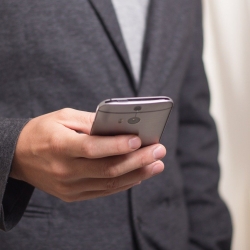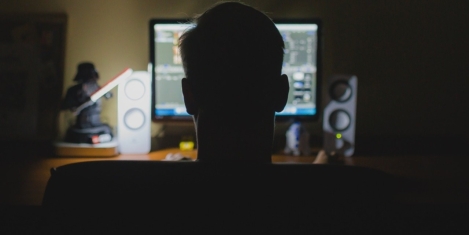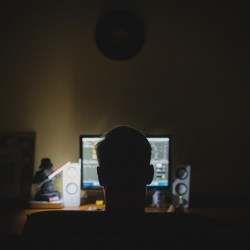To provide the best experiences, we use technologies like cookies to store and/or access device information. Consenting to these technologies will allow us to process data such as browsing behaviour or unique IDs on this site. Not consenting or withdrawing consent, may adversely affect certain features and functions.
The technical storage or access is strictly necessary for the legitimate purpose of enabling the use of a specific service explicitly requested by the subscriber or user, or for the sole purpose of carrying out the transmission of a communication over an electronic communications network.
The technical storage or access is necessary for the legitimate purpose of storing preferences that are not requested by the subscriber or user.
The technical storage or access that is used exclusively for statistical purposes.
The technical storage or access that is used exclusively for anonymous statistical purposes. Without a subpoena, voluntary compliance on the part of your Internet Service Provider, or additional records from a third party, information stored or retrieved for this purpose alone cannot usually be used to identify you.
The technical storage or access is required to create user profiles to send advertising, or to track the user on a website or across several websites for similar marketing purposes.
 Koa Health, has released a new report titled Wellbeing at Work, exposing the impact of COVID-19 on mental health in businesses across the UK and organisations’ response to the crisis. Social listening research conducted by Pulsar on behalf of Koa Health claims that as COVID took told in the UK, content shared online about people’s declining mental wellbeing increased by 400 percent in the period from the last week of February 2020 to the final week of May 2020. (more…)
Koa Health, has released a new report titled Wellbeing at Work, exposing the impact of COVID-19 on mental health in businesses across the UK and organisations’ response to the crisis. Social listening research conducted by Pulsar on behalf of Koa Health claims that as COVID took told in the UK, content shared online about people’s declining mental wellbeing increased by 400 percent in the period from the last week of February 2020 to the final week of May 2020. (more…)








 Central to any business is the need to communicate effectively. Whether you’re relocating to new or refurbished premises, or switching providers, it is vital to ensure your communications networks are up to the job in terms of performance and reliability. Not only is this required to support conventional telecoms and OTT services, it is key to smart building and smart infrastructure applications. Connectivity should not be limited to Wi-Fi either. Businesses are increasingly pushing mobile-only strategies and landlines are fast becoming obsolete in the workplace.
Central to any business is the need to communicate effectively. Whether you’re relocating to new or refurbished premises, or switching providers, it is vital to ensure your communications networks are up to the job in terms of performance and reliability. Not only is this required to support conventional telecoms and OTT services, it is key to smart building and smart infrastructure applications. Connectivity should not be limited to Wi-Fi either. Businesses are increasingly pushing mobile-only strategies and landlines are fast becoming obsolete in the workplace. 
 While working from home has surged in recent months, the use of flexible working hours – such as part-time, flexi-time and compressed hours – has fallen over the course of the Coronavirus pandemic, according to new
While working from home has surged in recent months, the use of flexible working hours – such as part-time, flexi-time and compressed hours – has fallen over the course of the Coronavirus pandemic, according to new 
 Has working at home during lockdown made people
Has working at home during lockdown made people 


 Companies that have a high-level of mutual trust between their management and employees are much more likely to have a greater economic and financial performance, according to new research from
Companies that have a high-level of mutual trust between their management and employees are much more likely to have a greater economic and financial performance, according to new research from 
 WiredScore, is announcing the launch of a new certification for smart buildings aimed at providing clarity, definition and measurement for the growing smart building industry.
WiredScore, is announcing the launch of a new certification for smart buildings aimed at providing clarity, definition and measurement for the growing smart building industry. 
 EMEA business leaders are out of touch with what employees want in the hybrid workplace experience, and 66 percent of organisations plan to adopt a different operating model than they had before the COVID-19 pandemic, according to a new survey from
EMEA business leaders are out of touch with what employees want in the hybrid workplace experience, and 66 percent of organisations plan to adopt a different operating model than they had before the COVID-19 pandemic, according to a new survey from 
 New research by
New research by 


 As lockdown starts to lift, more people are having to think about going back to work as normal. That means commutes, offices, cafeterias, and face to face meetings.
As lockdown starts to lift, more people are having to think about going back to work as normal. That means commutes, offices, cafeterias, and face to face meetings. 








April 26, 2021
What are the limits of an employer’s duty of care to employees?
by Helen Jamieson • Comment, Wellbeing